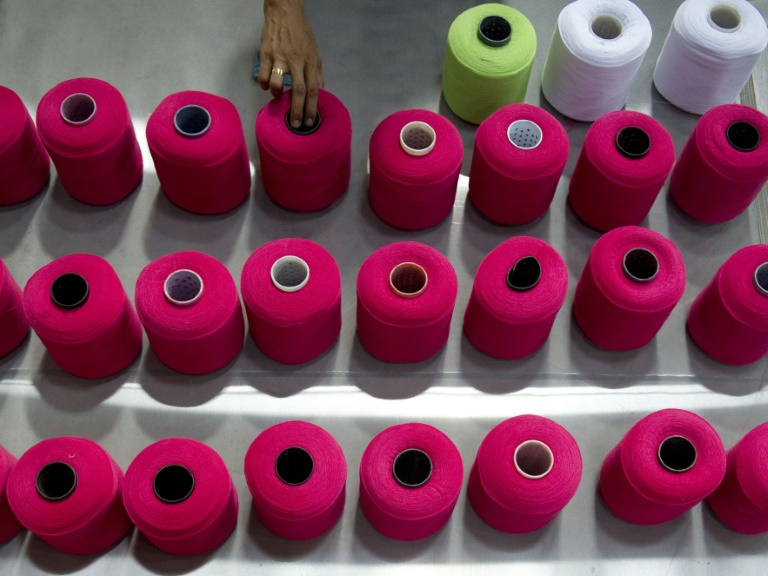
11/22/2023 – 11:03
The ‘Mambujan Weavers’, a group of women who survived a massacre by Colombian paramilitaries and took refuge in making tapestry to heal their wounds, share their experiences in the UK.
The trip to London and Belfast, where they will meet Northern Irish Members of Parliament and local groups, will take place a week before the opening of the Mambojan Art and Memorial Museum on November 30.
“They invited us to show our tapes and tell us about our experience,” said Juana Alicia Ruiz Hernandez, future director of the museum and head of the group, which initially consisted of 15 women who fled the massacre in March 2000.
Juana Ruiz, coordinator of Mambujan’s Women’s Weaving Dreams and Tastes Association, and her team won the Colombian National Peace Prize in 2015.
– “Heal the Wounds” –
The fabrics reflect the experiences of armed conflict and the traumas they suffered.
On March 11, 2000, Mambujan in northern Colombia, near the Caribbean Islands, was hit by an attack by a paramilitary group, causing displacement.
It wasn’t until 2006 that Teresa Kaiser, an American Mennonite from the Sowing Seeds of Peace Foundation, taught them how to weave tapestries so that they could artistically describe what they had experienced.
“We experienced sexual abuse, displacement, massacres. We treated the wounds and tried to tell what was going on through the tissues. Report what is happening and prevent painful events from happening again”, says Juana Ruiz.
“Our clothes started going to different museums, but many women were able to meet us, heal their wounds, reconcile and forgive,” she adds.
Currently, 245 families live in the new Mambujan where the museum will be opened.
– Forgive and forget –
Last year, the team, based at the University of Cambridge, then took the “Healing Wounds Through Art” experience to The Hague, Netherlands, where they spoke to judges at the International Criminal Court (ICC) and Brazil. , traveling through Peru, Nicaragua, El Salvador, as well as Colombia.
“We are a fundamental part of peace agreements, because as victims we also greatly contributed to their creation. If you forgive yourself, but never forget, you remember without the desire for revenge, without anger,” says Juana.
Juana Ruiz was accompanied on this trip by museologist Juliana Campuzano Botero, who helped create the museum.
“The purpose of the trip is to showcase the reparations efforts as part of the peace process in Northern Ireland. To be able to carry the message that peace is possible and how healing is achieved through art”, concludes Campuzano.
Follow her It is at Google News Get alerts about breaking news

“Reader. Infuriatingly humble travel enthusiast. Extreme food scholar. Writer. Communicator.”






